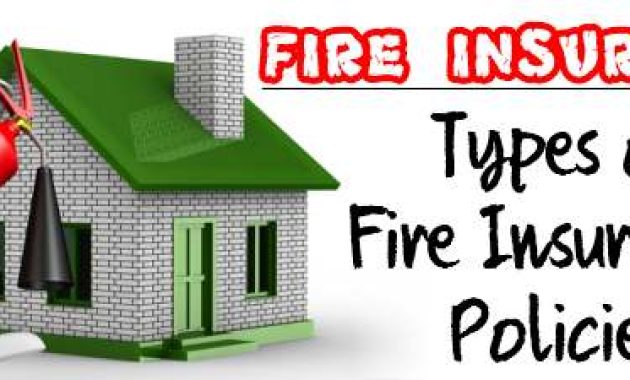A fire insurance policy is designed to cover the losses that are caused by fire. It is a contract between the insurance company and the insured, where the insurer assures to cover the damages and losses caused by the fire eruption. The policy helps the insured cover the risk of property loss by accidental fire cases in exchange for an annual premium.
Here we will discuss the different types of fire insurance policies:

- Valued Policy: Under Valued policy, a subject matter’s value is decided upon which the insurer pays if it is destroyed or damaged. The insurer agrees to pay a fixed amount of money irrespective of the insured’s amount of loss. It is useful for insuring precious items, artwork, and antiques; the asset’s value is agreed upon between the insurer and the insured at the time of buying insurance.
- Specific Policy: Under this policy, any loss suffered by the assured is covered only up to an amount less than the real value of the property. It is an example of under-insurance. If the loss exceeds the amount insured under the policy, it pays only the amount insured.
- Comprehensive Policy: This refers to the complete 360-degree protection for the property. If the insured property is a house, shop, office, or factory, this policy will also protect the loss due to burglary and break-ins. If you are a homeowner, this policy includes the building and the building’s contents as well. It is also known as an all-in-one policy.
- Floating Policy: This policy is designed to cover the property lying at different places against the loss by fire. The floating policy is very useful for businesses having multiple branches at various locations; it covers all branches under a single policy. This policy also has the average clause applicable to any of the claims. The floating policy is taken to cover the organization’s goods lying at different places, provided the goods should belong to one person only.
- Replacement Policy: Under this policy, the insurance providers assure compensation for the loss of property on the basis of the market value of that property. Thus the amount to be indemnified is calculated after considering the depreciation value of the property. The policy ensures that the compensation will be on the replacement price. As the compensation will be on the new assets’ market price, it is replaced without an additional expense.
- Transit Policy: It covers the risk due to fire during the transit. The policy commences with the loading of goods in the carriage and the policy ends once the goods are unwrapped at the destination.
Consequential Loss Policy: Under this policy, the insurer agrees to indemnify the insured for the loss of profits he suffers due to his business’s dislocation caused by fire. This policy is also known as loss of profit insurance policy. Due to a fire incident, factory works will be paused. Thus production will go down even though the fixed expenses continue at the same rate. With this fire insurance policy, all these losses can be covered.